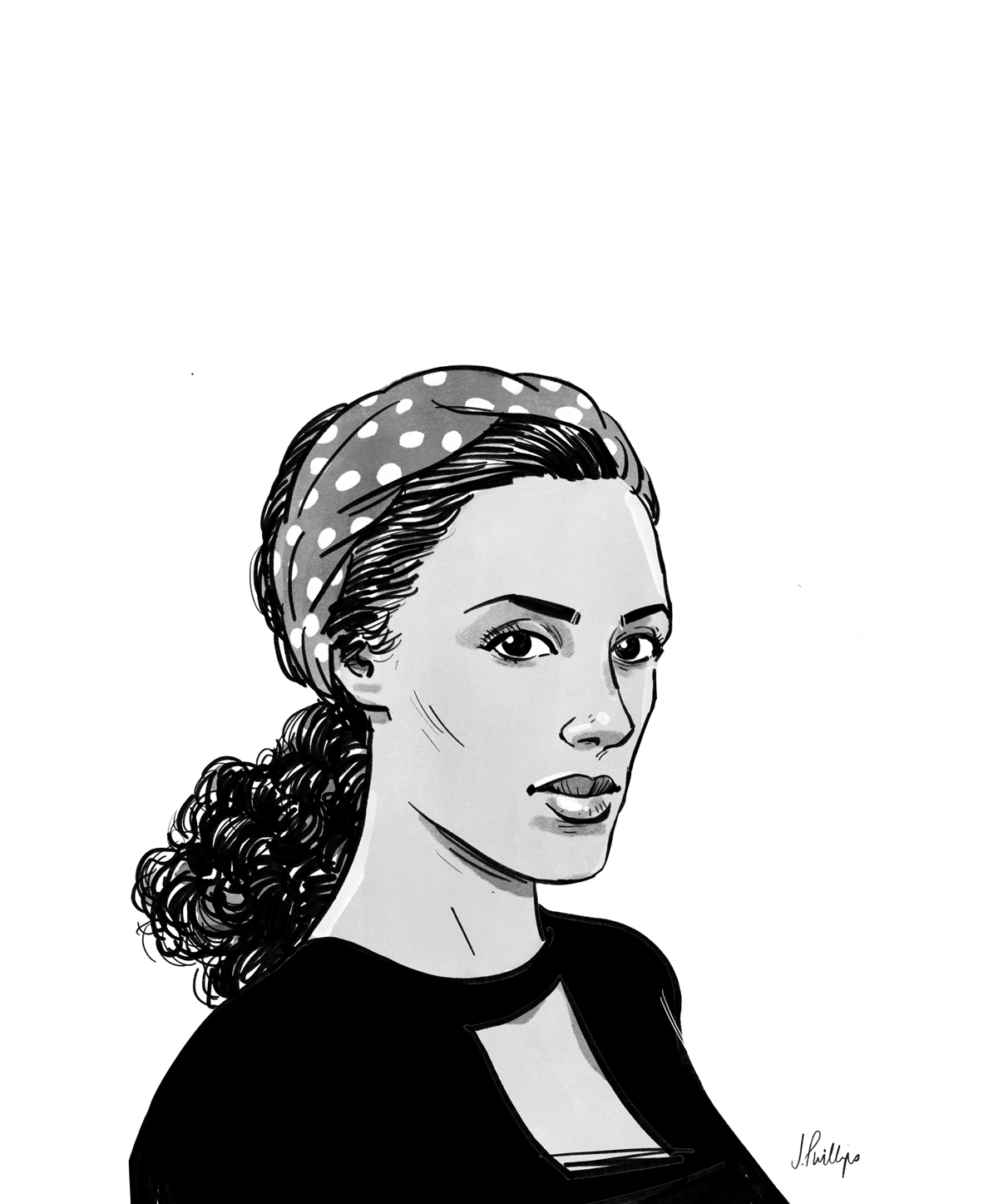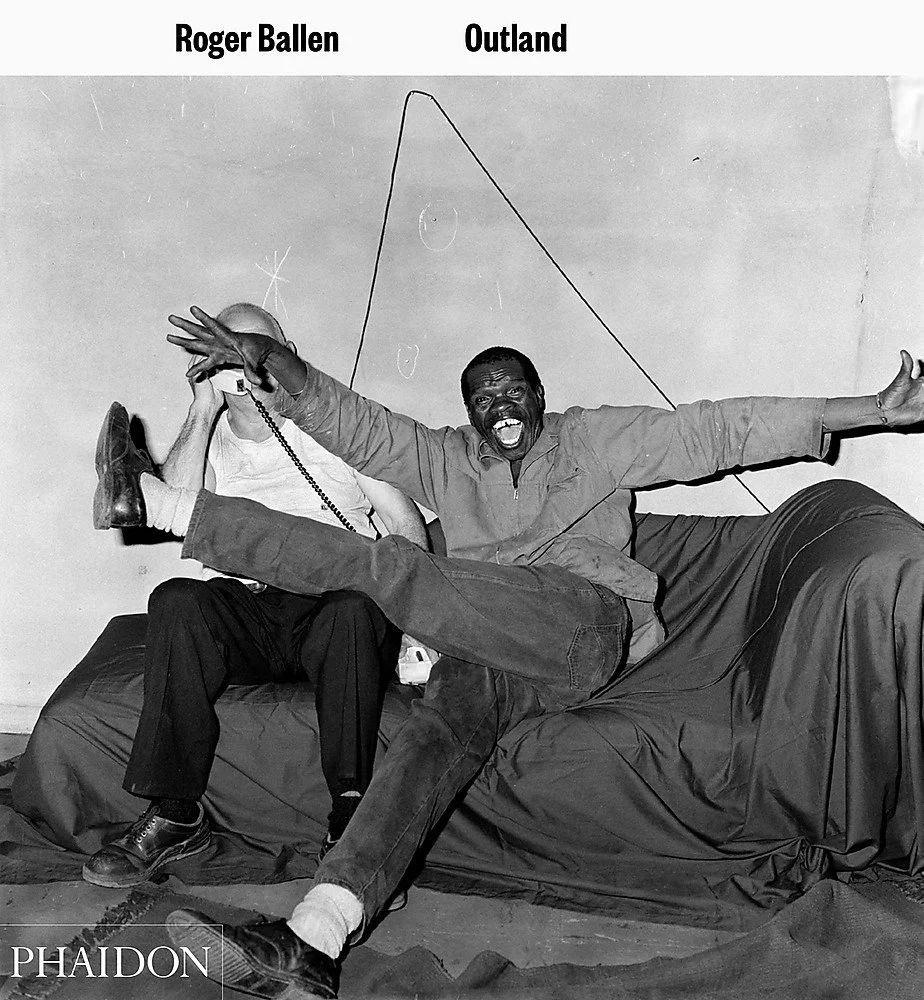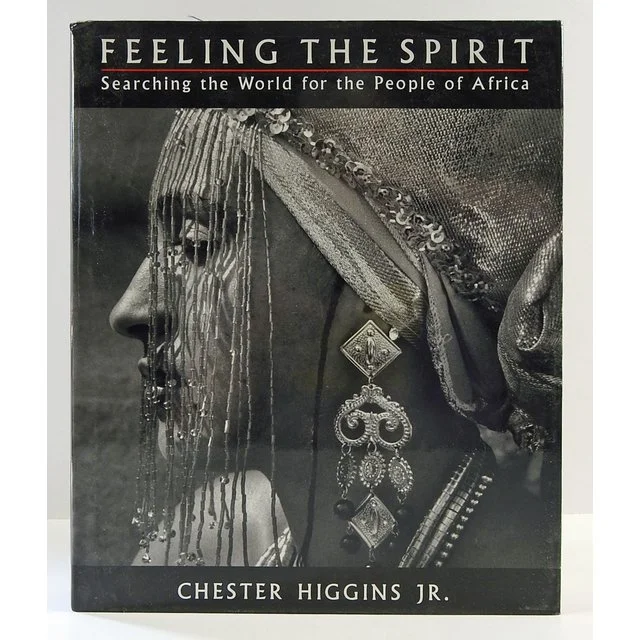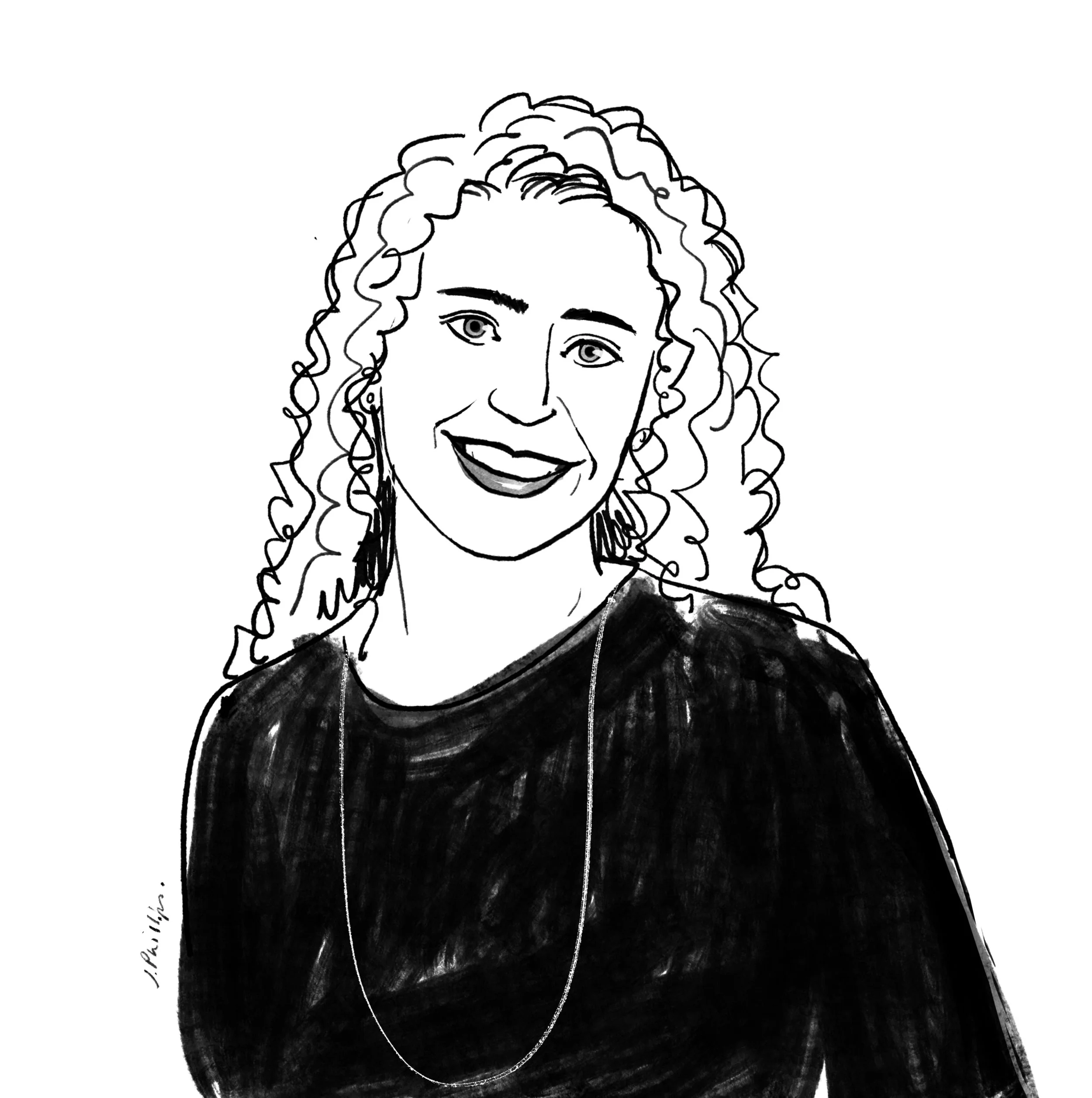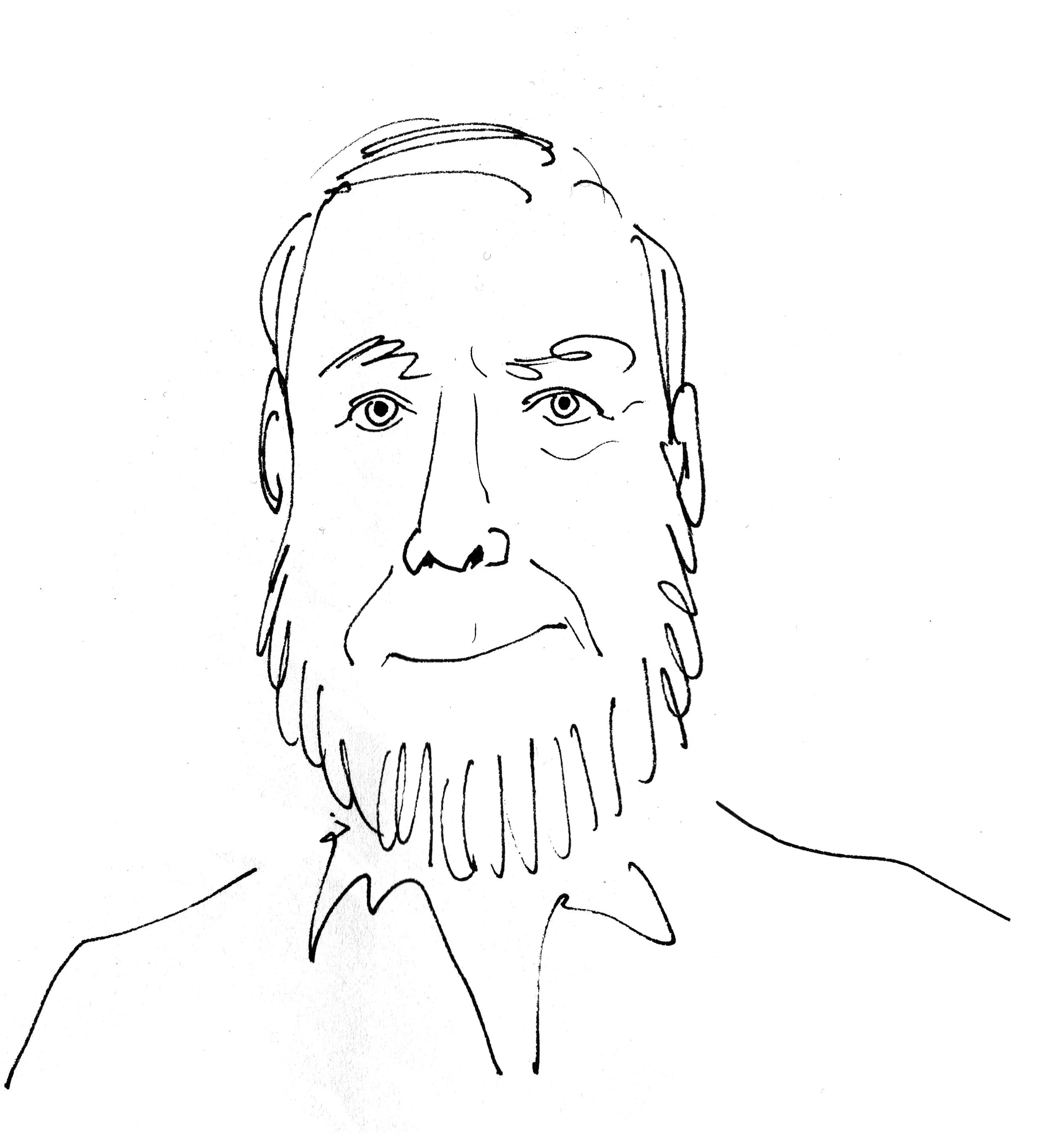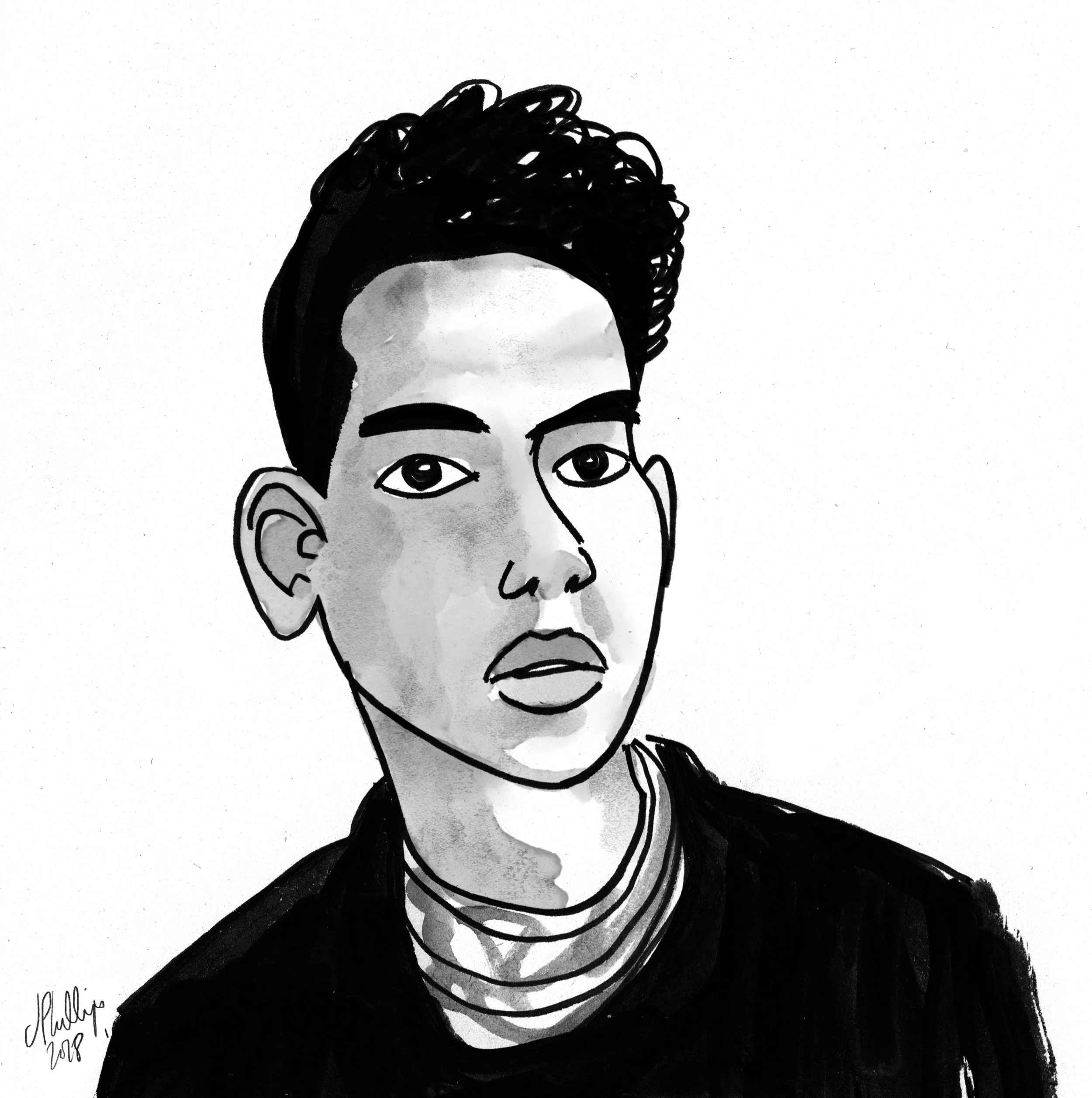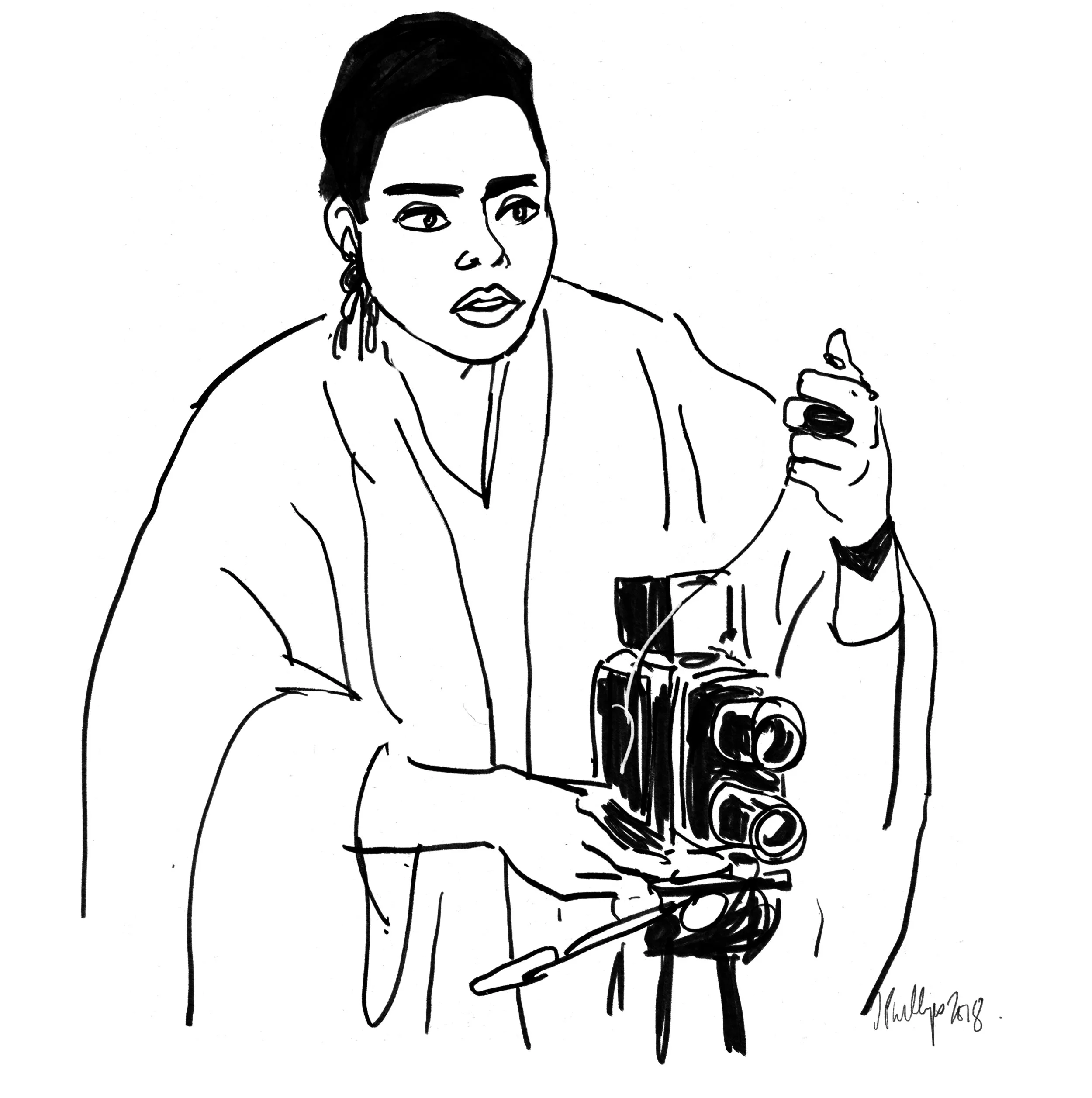Delphine Diallo, Visual Artist
Delphine Diallo is a Brooklyn-based French and Senegalese visual artist and photographer.
Delphine uses photography as a tool for healing and connection. She immerses herself in the realm of anthropology, mythology, religion, science and martial arts to release her mind.
She shares four photo books that inspire her work and talks about her experiences in healing, understanding the human condition, and challenging societal norms with the camera.
Outland,
by Roger Ballen
“This guy is dealing with people who are not pretty. They've been dismissed by society and he portrayed them like a painter. He showed the world their self-consciousness, not only in their habitat and surroundings, but also the depth of the darkness. And into the darkness of this expression I really felt lighted there, for them to exist. That's why Roger Ballen is giving praise for the simple things, even to darkness. He’s a one-of-a-kind photographer that I can't compare to anyone else.”
Imperial Courts,
by Dana Lixenberg
“I'm fascinated by people that spend time in their neighborhood and transform their daily life into a masterpiece. I feel it is more rewarding to show the beauty and the insights of the travel to find the source. The photographs are of people from the neighborhood that show so much kindness and love. And each has an aspect in their personality that I could read. I was like, whoa, it's the guy next door, or the woman next door. And you know, they're all princes and princesses in the making. That's why I appreciate her work so much.”
Feeling the Spirit,
by Chester Higgins Jr.
“Chester Higgins is a black photographer and was hired as full-time photographer for The New York Times for 30 or 40 years. He created a personal body of work through his spiritual journey in Haiti and in the islands in Mali. As a North American, he needed to heal himself and go through this journey to witness the waking of his soul through the ancestors.”
The End of the Game,
by Peter Beard
“He wasn’t even a photographer yet—that was his goal when he flew to Africa and started using a camera. He was documenting from an anthropological and sociological perspective of the landscape, witnessing a historical time of humanity, in a certain place. He photographed people, the killing of elephants, and his surroundings. The experience changed him.”
Delphine, you have said that the eyes of your subject heal you, and you hope to also heal your subjects. Are there examples of when you felt there was an unevenness and you took more than you received, or the other way around?
I think photography and portraiture are great tools for showing what can be discovered through the darkness and accepting it. Portraits need nurturing. It's easy to take portraits, and it's the hardest job ever. It has both sides to it. That's why I love the work.
The lack of representation requires that we need more portraiture done well. The work of fashion is cool, but portraiture means they bring to the forefront a different kind of persona of society. Those personal ones are very important to storytelling.
It's also like having a love relationship. Do you really think about it when it's happening to you? No. You're thinking about it when it's over.
For my project Women of New York, I shot 140 women. I didn't cast them. I let the women come to me. I put the call-out online and on Instagram. My assistant booked all the women who messaged us. It was amazing; I shot 15 women a day. And I didn’t check their picture before they arrive. I told them to bring their best self—make-up, clothes, everything.
After two or three days something happened to me.
First, I was exhausted. I had to give a lot of energy and listen to the stories of each woman before I shot them. That's what I usually do with my subject. At the end of the shoot, I followed up with the women. I’m guessing some women were here for conversation. Most of the women, I knew, would be satisfied with the picture. But they didn't come for the picture. They came to meet me, and to have a space to talk to me, because they saw something in my work that they relate to.
It's a very interesting relationship where I thought they saw a picture I made, and this is what they want from me. It actually wasn’t that. They wanted to start a relationship and know who's behind the lens.
My situation is a little bit more complex, because I'm white and black. My mom is blond with blue eyes; my dad is black. I grew up in a white environment in Paris, and I moved to New York to show that I am a mixed heritage. I don't feel Afro American, I don't feel 100% French, even if I am. And when I'm in Senegal, they call me white. Even Afro Americans have no understanding that, if Afro American people traveled to Africa, the black people in Africa will call them white, because they have a Western mentality. It's a very complex psyche around the world right now. You have to add those aspects to the healing.
Healing is saying, I’m not going to let society condition me in one aspect of what I actually want to do.
Do you feel like you would want to do this same project with women in, say, Paris?
No, that's why it's New York only. I got into this discussion with a magazine, because they didn't want to feature the picture. They told me in the beginning the picture was black and white. And then they pitched me again asking to do something else. They said it was too local. And I answered, “It can't be more global work than this. The women who answered the call are from all around the world.”
I got a great result because of having a diversity of people to work with, which is why I live in New York. There is no other place like New York to feel women from all around the world who are still connected to the same relationship. I create the oneness through the eyes of women, and felt like I was not able to do that in other cities.
How would you describe the concept of inner work to someone who has never seen your work or have trouble understanding what that means?
Photography is the composition of my soul with the soul of others.
Everything is coming from the inner. The relationship that I have with the people in front of me is very unique. So in this uniqueness of the form, this is where visions come to a place.
If you don't know me and you discover one portrait, you won't understand. You will read the energy of the character and say, oh, intriguing. But if you keep looking at the work, you will feel the soul, even if the work looks fashion for you in the first aspect.
That's pretty much what's also the issue in a lot of photography as well, because people relate only to the work of vision from the outside perspective. They say aesthetically it's good because the composition is good, and the colors are great. But guess what? We're in 2019. The generation of photographers and the visual world today will be at a level that it has never been before, because people know about aesthetics, and they will do amazing works of aesthetics.
Vision for me means, the inner experience of your soul, from the inside to the outside world.
Can you describe a photographic memory of a moment when things changed for you?
Recently, I had this solo show in LA. The space was huge. The organizers asked me to see the work and a lot of it was old and archived. I had to go to 16 addresses to make sure that I was refreshing my memory of what I did before.
I think the one skill that has taken a long time to achieve is the editing process of choosing the right picture, for the story and for the subject. Memory can be moody. You change and you don't have the same exchanges every year or every month. To be able to create a very substantial body of work, you have to create a kind of memory, which is going to go on for a lifetime.
I'm still learning about memory, thought, and process. When people go on my website and through my work, they can feel my memory. They can feel the story. They can feel the meetings and experience of traveling. They can now finally feel my vision.
This realization was recent. Memory is such an important tool of photography, because I didn't want to go back to the 16 addresses. Fuck man, I have to go to the past? But that's what photography is. You're going in the past right now. It's a great path, because you realize the fact that you witness an experience in time, and you catch up in the frame.
It will be a failure if a lot of photographers stop after 10 or 15 years. It’s okay to shoot commercial work but it’s draining for some. You realize that this is not you or this is you, but not really you. You’re trying to find a concession there. Photographers I know kind of lost their vision, because they didn't build memories for themselves. The failure in building memories to remind themselves who they are, the vision for them getting lost, is difficult. They have a hard time finding the next job, or the next vision. At some point they want to do personal work after so many years of commercial work. But the vision is a spiritual tool, and that's what we don't talk about enough.
For me, photography is a spiritual tool. It should be considered as a step for healing memory, and giving a legacy for the future to come—not just for you, but for others.
Movies are an amazing art form. But you need to go to the movie and sit for an hour and a half. And who has time today? Photography for me makes it even more meaningful today to be printing in a book, or showing to galleries, because people want to have experiences.
What’s missing in the photo industry?
We need more inner work. I'm not asking people to do the work that I'm doing. My conversation is different because the industry I’m seeing is being built on shooting celebrities, fashion, and street photography. Those topics need a different kind of representation in it.
To be able to break into this aspect of the psyche of the photography world, we need the visionaries, which means those who are more self-aware of how they express their vision. I wish there were more photographers who can champion consciousness.
We believe that art can fuel activism, how has that changed your work over the years?
I keep seeing others in my work. When I make a picture of a woman, there is a reflection. That mirror is a living being, it’s a human being in front of you.
I want to help people understand that art can heal the world and encourage you to think about life. It’s about healing. And I want to help women understand the power and strength of inner beauty. I was conditioned to not appreciate it, and it hurt me. That’s why I believe photography and art can heal myself and the person in front of me—and hopefully the world.
What’s the best piece of advice you ever received?
While I was working and learning from Peter Beard, he told me, don’t do fashion.
So he was shooting fashion while telling you, don't ever shoot fashion.
When Peter Beard was shooting for fashion, there were no art directors, no one next to him telling him what to do. He was hired by the fashion industry because he was an artist, and the fashion industry required a skill. So they needed to shut up and just wait for the pictures to get done, which is amazing.
The problem with fashion, especially with the big brands, is they still have a big control on the vision. Who's controlling who? Who is the controller of the vision right now? Nowadays you have a team next to you who's telling you exactly what is good and when to press the button. So he said, you decide for the rest of your life what your vision is going to be, and people are going to pay a lot of money for your vision. And that's the best advice he ever gave to me.
What he was really saying was, hold on to your vision and don’t do what other people tell you.
I remember one day he was looking at a magazine in the morning at breakfast. He would turn the page over in the fashion magazine, and he would say, "Dead picture. Dead picture. Dead picture. Dead picture." He would keep talking about the dead industry of photography. So the deadness of photography is the death of vision, which is repeating a vision of aesthetic that they keep doing over and over again to make you that you won't have your own.
So I had to be able to do this for myself. I had to stop watching movies for three years whenever I wanted to shoot. I had to watch nothing. I had to clean my soul from the past.

